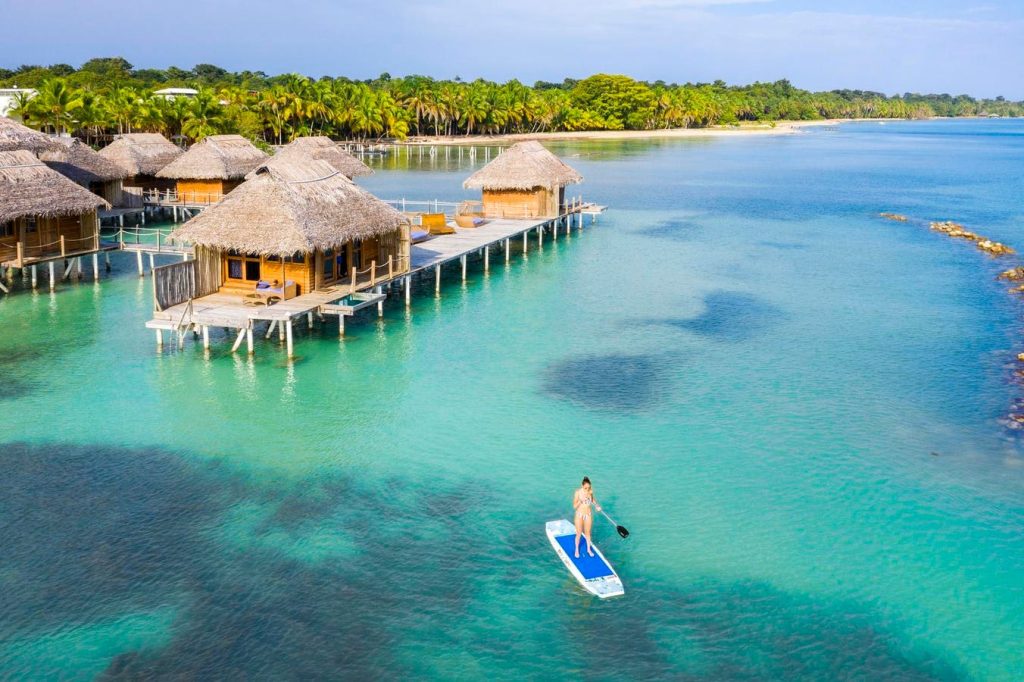Thinking about living abroad? You’ve come to the right place. International Living just released its Annual Global Retirement Index—which highlights the best places to move (or retire).
It’s been a hot topic in the wake of the recent U.S. election, which has sparked a wave of frustration among Americans, with Google showing massive spikes in searches like “how to leave the U.S.,” “best countries for Americans to move to” and “where to move abroad.” Even celebs like America Ferrera, Sharon Stone and Cher have made headlines with their plans to start over in new countries.
But for the average American, the question isn’t just about leaving, it’s about finding the right place to go for an affordable, fulfilling life abroad. That’s where International Living’s Global Retirement Index comes in. The report identifies the countries that offer the best combination of affordability, quality of life and opportunities for connection in welcoming communities around the globe.
The report is usually released in January, but due to overwhelming demand, the company decided to release it a month early this year.
“Historically, there’s a notable uptick in people exploring overseas living opportunities after elections—doesn’t matter who wins,” Jennifer Stevens, executive editor at International Living, told me in an interview. “We wanted to provide timely, updated guidance that reflects the insights we’re hearing from our correspondents on the ground.”
And even though the report has “retirement” in the name, that’s not the only audience. “One significant shift we’ve noticed is a growing interest among 35- to 45-year-olds in overseas living options,” says Stevens. “For years, our audience was primarily retirees, as they had the flexibility and savings to move abroad. But now, with the rise of remote work and flexible schedules, this younger demographic is pursuing international living while still maintaining careers.”
International Living’s report takes those younger demographics into account. “Many of our correspondents are mid-career professionals and have young families themselves, so they’re evaluating destinations with a broader lens,” says Stevens. “While they may not be fully retired, they’re looking for the same qualities that retirees prioritize in a place to live—things like affordability, safety, infrastructure and vibrant expat communities.”
Best Places To Move: The Methodology
So how does International Living determine the best destinations for expats each year? The Retirement Index assesses countries across seven key categories: housing, visas and benefits, cost of living, healthcare, development and governance, climate and an affinity rating that reflects the ease of integration into the local community.
The process begins with on-the-ground correspondents—expats themselves—who provide real-world data and insights. Housing affordability, for example, is measured by the cost of renting or purchasing in areas where expats typically live, with a focus on comfort and value. Similarly, healthcare is evaluated not only on quality but also on affordability. Cost of living is assessed through detailed questionnaires that account for everyday expenses, from groceries to utilities, to ensure a clear picture of affordability.
Visas and benefits are another critical factor. Some countries offer straightforward residency options like Panama’s Pensionado Visa program.
Perhaps the most unique feature of the index is the affinity rating, which looks at the human side of relocation. How easy is it to make friends, learn the language or find an English-language movie? Does the expat community feel welcoming? These factors—combined with data on infrastructure, governance and climate—create a comprehensive picture of each country’s appeal.
Best Places To Move: The Winner
Topping this year’s Global Retirement Index is Panama, a destination that checks all the right boxes for Americans looking to relocate. In last year’s report, Panama ranked fourth. “Panama’s rise to the top this year reflects a combination of factors, including the rising cost of living and housing availability in other popular destinations like Costa Rica, Portugal and Spain,” says Stevens.
At the heart of Panama’s appeal is the Pensionado Visa, one of the most generous residency programs in the world. Retirees who can demonstrate a lifetime pension of at least $1,000 per month qualify for permanent residency and access to significant perks. “Panama’s Pensionado Program stands out with exceptional perks, such as discounts on medical services, utilities, transportation and entertainment,” says Stevens. “These benefits significantly reduce retirees’ living expenses while enhancing their quality of life.”
But Panama isn’t just for retirees. The country also offers the Friendly Nations Visa, a flexible option for younger expats and families seeking a fresh start. It offers flexible residency through investment or business opportunities.
Most couples can live comfortably on $2,500 to $3,000 a month, offerning an accessible path to an upgraded lifestyle. Besides its affordability, Panama has excellent healthcare, particularly in Panama City, where hospitals are equipped with modern technology and English-speaking doctors. The country’s reliable infrastructure includes fast internet and convenient public transportation. And Panama offers diverse lifestyle options to fit any preference, from urban Panama City to beachside Coronado to the cool highlands of Boquete.
Best Places To Move: The Top 5
Portugal
Coming in at number two, Portugal continues to shine as the top-performing European country in the Index: It was ranked number one for 2023. With its mild year-round climate, stunning coastal landscapes and rich culture, Portugal appeals to retirees and expats alike. “The D7 visa makes it easy to establish residency,” contributor Terry Coles said in the report. “And the cost of living here remains competitive, even in popular areas like the Algarve.”
According to International Living, expats typically find their expenses in Portugal run about one-third of what they were in the States. Plus, the country has an excellent public healthcare system and private insurance is also affordable.
Costa Rica
Costa Rica—last year’s winner—ranks third. The country draws expats with its breathtaking landscapes, diverse climates and the welcoming “Pura Vida” lifestyle. Whether you prefer the beaches, the mountains or a mix of both, Costa Rica offers an incredible quality of life. “There’s a warmth to the people here, and the natural beauty is unmatched,” Bekah Bottone, International Living’s Costa Rica correspondent, said in the report.
Costa Rica is also a haven for those looking for eco-friendly living and community. From sustainable tourism to organic markets, it’s a destination that values environmental conservation as much as a laid-back lifestyle.
Mexico
Mexico, ranked fourth, has a well-established expat community. “Mexico gives you a taste of adventure with the comfort of familiarity,” Bel Woodhouse, International Living’s Mexico correspondent, said in the report.
Affordability is a major draw. A one-bedroom apartment near the waterfront in Cozumel rents for just $500 a month, while a larger two-bedroom option near the beach starts at $1,000. Inland, those prices drop even further. Mexico’s low cost of living extends to everyday expenses, such as fresh produce, dining out and travel. “Everything is more affordable, so I can dine out more and travel more,” said Woodhouse.
Mexico’s proximity to the U.S. is another big advantage. English is widely spoken in popular expat hubs like San Miguel de Allende and Oaxaca, and comforts from home—from products to cultural touchstones—are readily available.
France
France, ranking fifth on this year’s list, is one of Europe’s most appealing countries for expats. Whether you’re drawn to France for its cuisine, its culture or its combo of country mountains and beaches, it’s a destination that offers a balance of quality and affordability. Healthcare in France is world-class, ranking among the best globally. According to International Living, Southwestern France is emerging as a top retirement spot: Pyrenees-Atlantiques towns like Oloron-Sainte-Marie and Pau offer affordable housing and natural beauty.
Best Places To Move: The Rest Of The List
Rounding out the top 10 countries on the International Living list are Spain, Malaysia, Greece, Italy and Thailand, each offering unique benefits for expats. Spain combines a Mediterranean lifestyle with excellent healthcare, affordable living and cultural treasures. Malaysia—the highest-ranked Asian country—has exceptional affordability, a welcoming multicultural society and modern amenities, making it an excellent choice for both retirees and digital nomads. Greece offers breathtaking landscapes, a relaxed pace of life and a low cost of living, with islands like Corfu providing a serene escape. Italy’s major appeal is its focus on the slow life, where good food and good company are at the heart of daily living (and it doesn’t hurt that many places in Italy are trying to lure foreigners with great offers for cheap housing and even paying you to live there). Finally, Thailand draws expats with its ultra-low cost of living, excellent healthcare and mix of cities and beaches.
Best Places To Move: Considering The Impact
While the idea of Americans moving abroad might be enticing to Americans, it’s not always welcomed with open arms. In some areas, locals have raised concerns about gentrification and its impact on housing markets and communities.
“We’re aware of the pushback regarding gentrification, and it’s a valid concern,” says Stevens. “Our role is to present information responsibly, helping people integrate into communities respectfully and sustainably, while highlighting both the opportunities and the challenges of moving abroad.”
Some countries have already begun addressing the unintended consequences of expat-focused policies. Portugal’s Golden Visa program, for instance, once allowed foreigners to gain long-term residence by purchasing property for as little as $250,000 while only needing to be in the country two weeks a year. “Lots and lots of people took advantage of that program,” Stevens explains. “They rent their homes out as short-term rentals—or just leave them empty—and so, of course, that served to drive up the cost of housing for locals. Now, in response, Portugal has adjusted its policies to put an end to that.”
Stevens emphasizes that being a respectful and responsible expat goes a long way in fostering goodwill. “We believe strongly here at International Living that you should learn the local language where you go, [though] you don’t have to be 100% fluent to be integrated into a community,” she says. “Not only is it respectful (after all, you’re a guest in this other country), but you’ll have a better, richer, easier experience if you speak at least a basic amount of the local language.”
Ultimately, it’s up to expats to be responsible and to make an effort to connect with their adopted communities—and in return they are often warmly welcomed. “We don’t typically see communities pushing back on the modest-income individual who goes to a town they like, rents a place for the local going rate, employs a housekeeper and gardener, hires drivers a few times a week, shops in the local markets, eats out in locally owned restaurants and volunteers at the local animal shelter or the local elementary school,” says Stevens. “That person is more integrated and is usually perceived as a welcome member of the community.”
Now read on for the list of the best places to move (or retire). For a deeper dive into the best places to move, you can check out International Living’s original report.
Ranked: The World’s Best Places To Move (Or Retire)
- Panama
- Portugal
- Costa Rica
- Mexico
- France
- Spain
- Malaysia
- Greece
- Italy
- Thailand
MORE FROM FORBES:
Read the full article here













